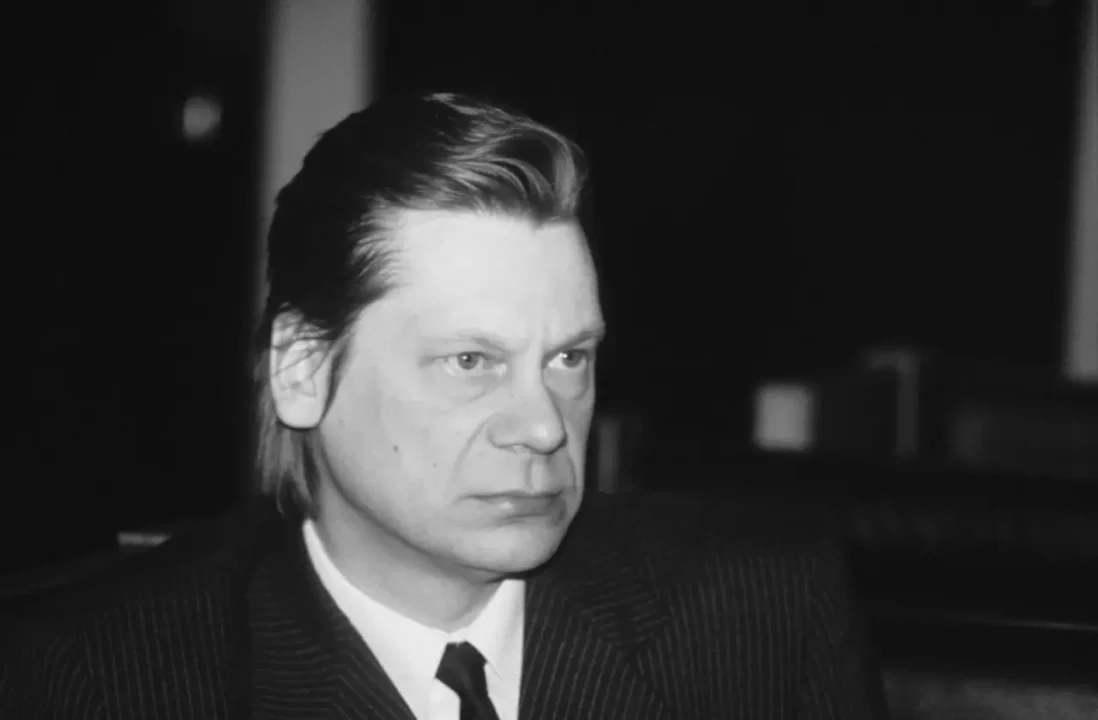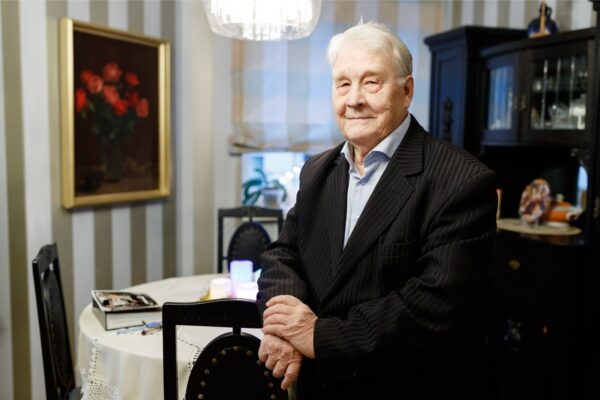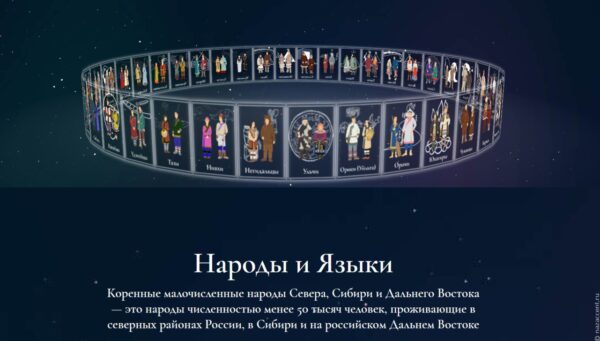In memoriam Jaan Tooming 28.03.1946- 5.04.2024
The director and actor Jaan Tooming, who considered Finno-Ugric ways of thinking important to Estonians, has passed away. Inspired by the work of Uku Masing, he reflected these thoughts in his theatre productions.

Life’s work
Already in the 1970s, Jaan Tooming used Finno-Ugric themes. For example, in the production ‘Brother Jonathan’ Khanty sacrifice sites were used as images. Perhaps the Finno-Ugric peoples living in Siberia somehow seemed more genuine, more real to him – to tell the ancient story of Estonians. So he visited the Selkups, our most distant tribal people, himself and with his brother Peter. He also visited the Ket people, who were then still considered Finno-Ugric. In 1978 he directed the film ‘Songs of the People of the Sky Elk’. He was fascinated by the epics of the Finno-Ugric peoples. In 2005 and 2007 he directed compositions based on the poems of ‘Kalevala’ with Anne Türnpu. In 2019, Jaan Tooming’s ‘Gods are in the Land’, based on the epic poem ‘Virantanaz’, was performed at the Estonian National Museum. Anne Türnpu, who took part as an actress, has said of the epic:
‘There’s a huge amount of spells, exorcisms, chants, curses. This kind of communication with the other world always requires rhythm. When we talk about Jaan Tooming’s theatrical oeuvre, there is a feeling that this has been his theme throughout – a person dealing with mythical worlds, the otherworld, our place in the otherworld.’
Among the Finno-Ugric themes, one cannot fail to mention Jaan Tooming’s production ‘Kaupo and Lembitu’, based on the play ‘Kaupo’ by Rein Sarvesaare (Leo Sepp), published in 1937. Tooming himself has said of the play that it took him 40 years to produce it in 2019, and he was spurred on by the idea of understanding the Livonian elder Kaupo, rather than condemning him.
Finno-Ugric solidarity
Jaan Tooming has touched on Finno-Ugric themes in his numerous writings, criticising Russian power and sympathising with the Finno-Ugric peoples, while hoping for a brighter future for them.
For example, Tooming has written: ‘The Russians are torturing the Khanty especially by drilling for oil in the Khanty holy places, and by ruthlessly polluting nature. The Khanty people laugh and say that the Khanty have been oil people since time immemorial. But revenge will come, because eventually the oil will run out and civilisation will collapse, but the Khanty will remain, free and happy hunters, foragers, fishermen and reindeer herders once more. That time will come, and it is no wonder that the Khanty do not consider the Russian to be human. For he is not a man who does not care for nature, for God’s world, who plunders it for gain and spends his life in vain. And let us hope that the Khanty will wait patiently for the day of their liberation.’
Tooming and Finno-Ugric mentality
Jaan Tooming, drawing on Uku Masing’s story, undoubtedly took a different view of the world, arguing that the Finno-Ugric way is different and is not the Indo-European way. Because Finno-Ugric languages are not Indo-European languages at all, and people think in the language they speak.
Tooming has written in Maaleht: ‘Our Estonian culture is very thin when we think of the fine arts. And the world does not know our spiritual culture. When we think of the visual arts as “beautiful”, if we have a mental language, we can only think of something beautiful. But few people realise that with our Finno-Ugric language we are different in a sea of Indo-Germanic peoples. Quite a small drop.’
Fenno-Ugria pays tribute to the memory of the late great man, director and actor, who thought about Finno-Ugric peoples and the roots of our language and culture.
- In memoriam Jaan Tooming 28. III 1946 – 5. IV 2024 (10.04.2024 Teater.ee, in Estonian)
- Jaan Tooming. Handid ja meie ka (13.01.2024 ERR, in Estonian)
- Jaan Tooming. Hüvastijätt (16.10.2019 ERR, in Estonian)
- Anne Türnpu: Jaan Tooming aitab näitleja oma pisikesest sisekosmosest välja (04.09.2019 ERR, in Estonian)
- Jaan Tooming. Kes valgustab teed? (23.06.2015 Maaleht, in Estonian)


